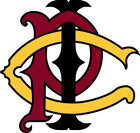Our school division has developed a purpose of school counsellors, philosophy, objectives of guidance program, and functions of a school counsellor which are all listed below.
Purpose of School Counsellors
Guidance counsellors are assigned to all Division Schools from Kindergarten to Grade 12. Counsellors provide the following services:
Individual Counselling ( i.e. emotional and behavioural issues)
Developmental Guidance Program (i.e. family life)
Peer Support Programs
Collaborative services with outside agencies
Crisis Counselling
Conflict resolution
Orientation of new students
Career Counselling
Rainbows (Spectrum)
The guidance and counselling program is designed to assist students in all aspects of schooling. The major thrust of guidance and counselling is preventative in nature and primarily concerned with meeting the normal developmental needs of all students. This program includes educational, career, and social –personal guidance and counselling.
Philosophy
It is our belief that each child is a unique individual who will develop at his or her own rate. Keeping this in mind, a comprehensive developmental school guidance program has been developed to foster the social, emotional, cognitive and physical well-being of each student. The overall purpose of counselling, like teaching, is to maximize the learning potential of all children. Our basic assumption is that children who feel capable and worthwhile will gain the maximum benefit from their educational experiences. Counselling programs not only recognize the needs of children in crisis, but also focus on preventative guidance, personal– social guidance and career development.
Objectives Of the Guidance Program
Guidance programs throughout the division are designed to help students develop:
- An awareness and realization of self through an understanding of their own abilities, areas of competence, interests and personal characteristics;
- A greater sense of confidence in their own abilities through the establishment and pursuit of realistic expectations and goals;
- The ability to gather and utilize available information and resources for the purposes of educational, career, and life planning and utilize the skills of decision making as they apply to their occupational, educational, and personal lives;
- Personal skills to enable them to communicate and relate more effectively with others.
Functions of a School Counsellor:
Counselling
Through discussions, a counsellor helps the student examine problems and concerns. Together they work towards a solution.
Coordinating
Important resources such as employers, colleges and universities exist within our community. The counsellor can utilize these resources to help students plan their school programs with their future training and careers in mind.
Consulting
The counsellor consults with parents, teachers, administrators, and support service personnel in student related areas such as behaviour programs, attendance, academic progress, and guidance programming.
Informing
The guidance department provides general and specific information for students considering further education, or for the world of work, or other topics of special interest.
Working with Student Groups
The school counsellor works with groups of students in guidance classes and small group sessions. Typical issues may include educational/career information, drug and alcohol use, positive peer relationships, anger management, bullying and self-esteem.
Referring
School counsellors maintain an ongoing referral basis with support services within the division. These support services among others, include Community Mental Health, Child and Family Services, and Public Health.
Manitoba Comprehensive Developmental Guidance Standards and Competencies for Students at the High School Level
| Personal/Social Development
Human Dynamics
|
Educational Development
Self and Learning
|
Career Development
Self and Work
|
